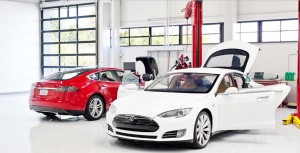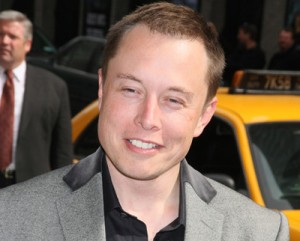
The Federal Trade Commission told two state legislative bodies that they should repeal laws preventing automakers, such as Tesla, from selling vehicles directly to consumers.
Once again, officials at the Federal Trade Commission have put a broad smile on the face of Elon Musk, Tesla Motors’ founder and chairman.
For the second time in less than a month, three administrators suggested that laws requiring new vehicles be sold by independent dealers be repealed or scaled back.
The administrators, Andrew Gavil, director of the FTC’s Office of Policy Planning; Deborah Feinstein, director of the Bureau of Competition; and Martin Gaynor, director of the Bureau of Economics, responded to requests for information from members of the Missouri House of Representatives and the New Jersey State Assembly.

Tesla founder and CEO Elon Musk recently took the Missouri Senate to task for passing legislation preventing direct auto sales to consumers.
In Missouri, legislation is pending that would require all new motor vehicles in Missouri to be sold through independent dealers, eliminating any possibility of direct sales by manufacturers. It’s actually an amendment to a bill about recreational off-highway vehicles, all-terrain vehicles and other selected vehicle types.
The current law limits franchising auto manufacturers’ ability “to innovate in their methods of sale in ways that might be more cost-effective and responsive to consumer demand” and “is very likely harming both competition and consumers,” the trio wrote in a response for information. They added that the proposal “would amplify the adverse effects of the current prohibition” and “discourage innovation.”
In New Jersey, proposed legislation allows for some limited sales outside of the existing dealer structure, but the FTC came out against any limitation at all, suggesting that consumers ultimately pay the price for such restrictions.
“New Jersey’s consumers would more fully benefit from a complete repeal of the prohibition on direct sales by all manufacturers, rather than any limited, selective set of exceptions,” the administrators wrote, noting that “current New Jersey law . . . is very likely anticompetitive and harmful to consumers.”
The trio took things a step further in their submissions to each legislative body. They suggested they repeal the existing restrictions on the direct sale of new cars by manufacturers. They said that while its impacted Tesla, the effect of the current laws is that it limits the ability of consumers to make the choices that are best for them.
Not surprisingly, Musk weighed in on the issue in a recent blog post, criticizing Missouri’s auto dealer lobby for getting the amendment tacked on and taking the state senate to task for not holding debate on the amendment.
“Just as we saw in New Jersey, however, this bill amendment expands the scope of the existing law well beyond its original intent,” he wrote. “They are attempting to do so in part by redefining the word ‘franchisor’ to mean ‘manufacturer,’ a pirouette of which the legislators may not even be aware. To be clear: this is worse than a mere case of dealers trying to protect an existing monopoly – this is a case of dealers trying to create a monopoly.”
The Missouri Auto Dealers Association disagrees suggesting the proposed law reinforces the status quo.
(Tesla gains new ally in fight to sell cars. For more, Click Here.)
“For more than 30 years, Missourians have purchased their vehicles through our current franchise system, which protects consumers and promotes market competition,” MADA President Doug Smith said to KOMU 8, a Missouri television station. “Simply put, the system has worked for Missouri business and consumers.”
The FTC trio came to similar conclusions on the FTC’s blog in April. Since the dealer franchise system took shape in the middle of the last century, the way consumers purchase a variety of goods has changed significantly. However, buying an automobile has not. They also note that more than 15 million new cars were sold in the U.S. last year and Tesla sold 22,000 of them.
(Click Here for details about Tony Cervone rejoining GM’s PR staff.)
“This hardly presents a serious competitive threat to established dealers,” they wrote.
Dealers have long argued the franchise model is good for consumers because dealers compete on price and offer long-term service. It also protects them from being bullied by automakers. They see direct sales as a threat to their long-term viability.
(To see how pregnancies are linked to higher car crash risks, Click Here.)
However, the trio of directors had a different view.
“How manufacturers choose to supply their products and services to consumers is just as much a function of competition as what they sell – and competition ultimately provides the best protections for consumers and the best chances for new businesses to develop and succeed,” they wrote.
“Our point has not been that new methods of sale are necessarily superior to the traditional methods – just that the determination should be made through the competitive process. Change is a critical dimension of that competitive process.”

This is egregiously faulty reasoning. For starters, how much do you think it would cost all manufacturers to set up numerous service locations for warranty work/customer satisfaction? And, in so doing, eliminate competition for new vehicle sales that clearly would cause higher prices for the consumer. And, of course, it would remove the existing network of used car retail/wholesale operations that are essential for orderly turn-in of lease and trade-in vehicles.
It is important to recognize that much of having a franchised network relates to the fact that vehicles retain value after the first owner, which is quite unique in any consumer productss that we buy (think expensive furniture, etc).
The FTC has never been known to be the most logical organization in the world and their POV on manufacturers competing against franchisees illustrates how removed from reality the FTC is just like Elon.